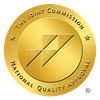The Importance of Not Delaying Well Child Care
We are all facing some stressors and fears that we may not have ever dealt with before. We are in an era of great uncertainty as we all learn about a novel (new) virus affecting the world as a whole.
As we learn from the medical professionals working on the front lines treating COVID-19, we can begin to develop a plan for how to best manage our response to this pandemic.
One concerning finding since the first case of COVID-19 erupted in the US is the sudden and drastic decrease in childhood wellness visits and immunizations. The American Academy of Pediatrics (AAP) has issued statements recently reiterating the importance of continuation of childhood wellness visits and immunizations, even during this pandemic.
We may think of childhood wellness visits as “preventive”, and they are. But this preventive service is a vital surveillance visit. These visits allow your child’s provider to assess the child’s development, behaviors, healthy habits, and to also address any physical abnormalities that would have otherwise been missed. For example, a hernia that a parent may think is normal could need to be evaluated by a surgeon and it is the wellness visit that usually enables a provider to properly refer those patients.
Wellness visits are more frequent in children younger than 2 years of age, and this also allows for the necessary immunizations to be performed.
The AAP stresses that a few months of widespread decreases in immunizations can potentially ignite an outbreak of illnesses that are now preventable. For example, it is possible that several months of a decrease in immunization completion rates could lead to a measles outbreak. Measles is a viral illness associated with fever and rash, but in more severe cases can cause brain swelling and inflammation and could lead to lifelong disabilities and even deafness. Several other routine immunizations protect against common pathogens that can cause severe pneumonia, ear infections and stomach illnesses such as severe diarrhea and vomiting.
If you are concerned regarding visiting your child’s provider, call and see what measures the office is taking to help keep you and your child safe. Most practices have accommodations for healthy patients, such as using an alternate entrance or waiting in vehicles. Scheduling a first-morning appointment may also help to decrease any potential exposure.
Remember that prior to school restarting, there is likely going to be an increase in appointments. Scheduling needed immunizations and wellness visits now would avoid overcrowding and offices needing to delay visits due to full schedules. As offices may try to avoid crowded waiting rooms, their schedules may not allow for as many visits each day. This would only further push appointments out if everyone is scheduling at the same time, a few weeks before the beginning of the school year.
Do not miss out on a vital part of maintaining your child’s health, attending his or her routine wellness visits.
Morgan Windham, DNP, MSN, CPNP-PC, is a Certified Pediatric Nurse Practitioner who practices at CareSouth Carolina’s Bishopville office.











